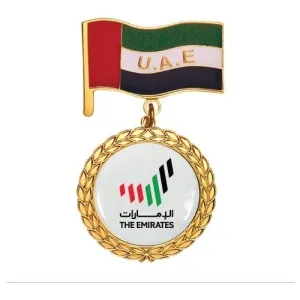Business Protocol and Gift-Giving Etiquette in the Middle East and Africa
Business Protocol and Gift-Giving Etiquette in the Middle East and Africa: Cultural Insights for Effective Corporate Relations
Business interactions in the Middle East and Africa are deeply rooted in cultural traditions and protocols that have been shaped by centuries of history and societal norms. Gift-giving plays a significant role in these regions, serving as a gesture of respect, gratitude, and goodwill. However, navigating the complexities of gift-giving etiquette requires a deep understanding of cultural nuances and sensitivities. In this comprehensive essay, we will explore the business protocol and gift-giving etiquette in the Middle East and Africa, shedding light on the cultural insights necessary for building effective corporate relationships.
Understanding Cultural Context:
The Middle East and Africa encompass a vast array of cultures, languages, and traditions, each with its unique customs and practices. In the Middle East, hospitality is highly valued, and gift-giving is often seen as an integral part of building and maintaining relationships. Similarly, in Africa, gift-giving is deeply rooted in communal values and social hierarchies, with gifts symbolizing respect and reciprocity. Understanding the cultural context is essential when engaging in business interactions in these regions, as failure to adhere to local customs and etiquette can lead to misunderstandings and strained relationships.
Business Protocol in the Middle East
In the Middle East, business protocol is governed by a set of formalities and rituals that reflect the region's cultural values and Islamic traditions. When conducting business in the Middle East, it is crucial to prioritize building trust and establishing personal connections. Business meetings often begin with small talk and hospitality gestures, such as offering coffee or tea, before delving into the main agenda. When presenting gifts, it is customary to choose items of high quality and value, preferably with cultural significance. Gifts should be presented and received with the right hand, as the left hand is considered unclean in Islamic culture. Additionally, it is customary to express gratitude and humility when giving and receiving gifts, emphasizing the importance of generosity and reciprocity in Middle Eastern business culture.
Gift-Giving Etiquette in Africa
In Africa, gift-giving is deeply ingrained in social customs and traditions, serving as a symbol of respect, gratitude, and solidarity. However, gift-giving etiquette varies widely across the continent, reflecting the diverse cultural landscapes of different regions and ethnic groups. In many African cultures, gifts are exchanged during ceremonial occasions, such as weddings, births, and festivals, as well as during business interactions. When giving gifts in Africa, it is essential to consider the recipient's cultural background and preferences. For example, in some cultures, certain colors or symbols may hold specific meanings, so it is advisable to choose gifts that are culturally appropriate and respectful. Additionally, gifts should be presented with both hands as a sign of respect, and it is customary to downplay the value of the gift to avoid appearing ostentatious.
Navigating Cultural Sensitivities
In both the Middle East and Africa, navigating cultural sensitivities is paramount when engaging in business interactions and gift-giving. It is essential to be mindful of religious and cultural taboos, such as avoiding alcohol-related gifts in Islamic countries or giving gifts made from certain animal products in African cultures. Additionally, gender roles and hierarchies may influence gift-giving dynamics, so it is crucial to be aware of local customs and traditions. When in doubt, seeking guidance from local advisors or colleagues can help navigate cultural nuances and ensure that gifts are well-received and appropriate for the occasion.
Conclusion
Business protocol and gift-giving etiquette in the Middle East and Africa are deeply rooted in cultural traditions and values. Understanding the cultural context and nuances of these regions is essential for building effective corporate relationships and navigating the complexities of gift-giving. By prioritizing cultural sensitivity and respect, businesses can foster trust, goodwill, and mutual understanding, laying the foundation for successful partnerships and collaborations across borders and cultures.
Spotlight on Trending Promo Gear
Browse the most popular and trending Corporate Gifts




















